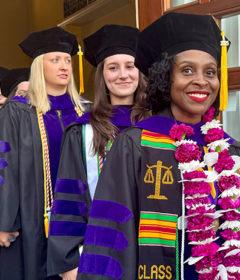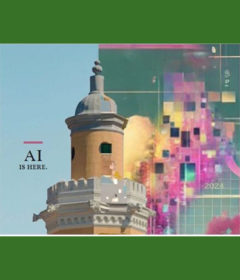Groundbreaking Law Professor Luz Nagle Retires from Stetson
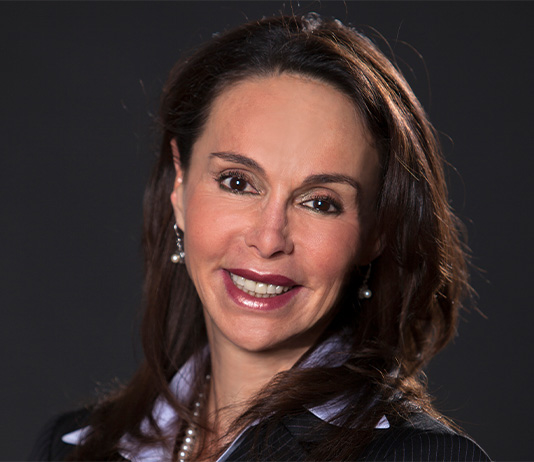
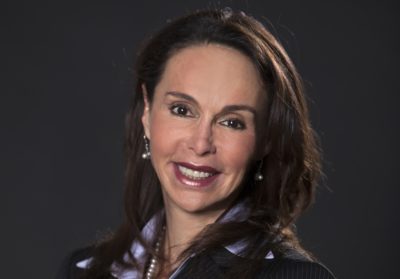
From standing up to violent drug cartels in Medellin, Colombia, to spending nights and weekends tailoring lesson plans to meet the evolving needs of students, Law Professor Luz Nagle has spent decades in selfless pursuit of a more just world.
After 25 years of tirelessly leading Stetson’s international law courses and programs, Nagle has retired from her full-time faculty role.
A passionate human rights advocate, she was Stetson Law’s first Hispanic tenured faculty member. Her deep commitment to her students — and, off campus, to fighting human trafficking and other international crimes — has helped earn her the honor of Professor Emerita.
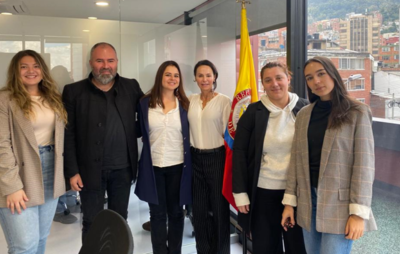
Nagle’s time at Stetson Law follows a long, varied career that began in her native Colombia, where she served as a young judge during serious sociopolitical violence in the 1980s.
Asked what she will miss the most about life at Stetson Law, Nagle said she’ll miss her students and watching them evolve into legal professionals.
“It’s so great to see the transformation of the students, from the first two weeks of class until the end,” she said. “The students taught me a lot, and that is what I treasure the most and what I miss the most.”
Tireless Commitment, Innovative Approach
Colleagues say Nagle’s passion for teaching international law was contagious — and that she had a unique ability to engage students on the subject.
“While she continued to pile up awards and accolades throughout her career and was highly sought as a speaker around the world, Luz’s real passion was teaching and she excelled at it,” said Stetson Law Professor Mark Bauer. “Students were excited and inspired by Luz’s classes.”
Bauer added that Nagle modeled exemplary professionalism and achievement for students, faculty, staff and alumni of the College of Law.
Law Professor Linda Anderson said Nagle is a beacon of knowledge in the realm of international law whose unwavering commitment to her students and passionate advocacy against human trafficking have left an indelible mark that will persist long after her retirement.
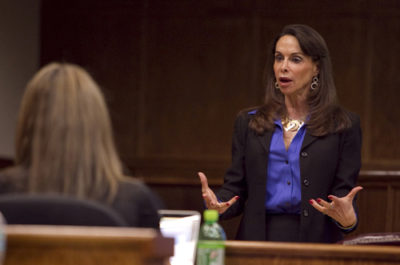
“Her profound dedication to shaping the next generation of legal minds and her tireless efforts in addressing global issues showcase a legacy that extends far beyond the classroom,” Anderson said. “Luz exemplifies the intersection of expertise and empathy, leaving an inspiring imprint on the lives she has touched.”
Nagle’s approach to teaching was unconventional. Every semester, for every course she taught, she would tailor the coursework to the unique needs of her students.
“My first two weeks of class were always a thermometer for me,” Nagle explained. “I would try to learn who my students were to see what method I was going to use for them to better understand and absorb the material.”
Nagle also went to great lengths to ensure her coursework was informed by current events, such as the war in Ukraine.
“In international law, events change every single semester and year,” she said. “I would grab events to create simulations for the students to be able to apply the cases and what we were covering.”
One year, as wildfires impeded California winemakers’ ability to grow grapes, she learned about the domestic and European wine industries and the laws governing them to develop a fact pattern that reflected the real-world complexities of international business.
Deep-Seated Passion for Justice
Nagle’s commitment to student success seems to run in the family. Her father was the dean of a chemical engineering department at a university in Colombia. He would invite struggling students to their home for tutoring sessions to help them grasp the material. His practices provided an early foundation for her own teaching techniques when she became a law professor.
The eighth of nine siblings, she grew up keenly aware of the poverty others were experiencing, and of her own privilege.
“I grew up in a country where the gaps between the haves and have-nots were huge,” Nagle said. “I remember being a little girl, and my mom would always tell my younger brother and me to serve a plate equal to the ones we were serving ourselves and put it to the side because little kids would be knocking at the door asking for food. I saw a lot of kids going through trashcans looking for food.”
As a teenager, she was debating whether to study chemistry or law. She chose the latter after witnessing the way the justice system treated children living at local orphanages, whose legal troubles snowballed as the root cause of their behavior went unaddressed.
“I always thought that the children were not to blame for a lot per se; that there were issues in society that needed to be fixed,” Nagle said.
Seeking Justice at All Costs
Nagle’s early career was often harrowing. She worked as a judge in a time and an area of Colombia where drug cartels paid off public officials — and targeted those who wouldn’t take a bribe. Unlike the U.S. justice system, Colombia’s is inquisitorial, which means members of the judiciary conduct investigations. Nagle took her role seriously, regularly standing up to violent criminals and corrupt officials.
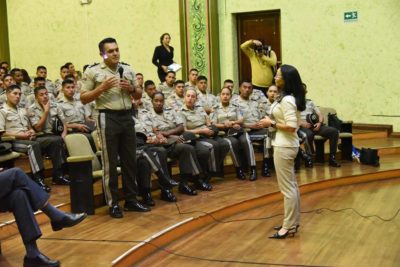
She faced death threats and multiple attempts on her life. Her car was tampered with. She was followed while driving to work by men on motorcycles who shot out her windshield.
One day, a drug cartel member came to Nagle’s office and tried to shoot her — but his gun got stuck in its holster. Nagle managed to draw a revolver she had been given for protection and shot him in the leg.
“When you’re young, you think you’re invulnerable,” Nagle said. “You think that you can change the world alone.”
The final straw was a warning from a concerned family friend, who asked her if she could stomach her family members being killed, one by one, if she persisted.
“And that’s when I said ‘Shoot. This is for real,’” Nagle said.
New Beginning
Nagle’s now-husband, Jerry, whom she met years earlier while studying English in Santa Barbara, was planning to join her in Colombia as the threats reached a crescendo. Instead, they married and returned to California, where she had to build her career from scratch.
“I was a house painter,” she said. “I cleaned offices at night. I cleaned toilets. I had told my husband I didn’t want to be a lawyer because I didn’t believe in law. I didn’t believe in lawyers — because I thought they were corrupt.”
Her husband kept encouraging her to pursue law. She was moved to do so when, visiting a local Latin market, she heard stories about people having been brought to the United States, kept as prisoners and forced to work with no pay.
“Maybe learning a different system will allow me to be a bridge between countries in Latin America that are so corrupt,” she commented. “And maybe the U.S. legal system will have more answers. Maybe the process will be fairer. And that’s how I decided to go back to school.”

She earned an M.A. in Latin American studies and an LL.M in international law at UCLA, then went to the College of William & Mary for her JD. She clerked for the Supreme Court of Virginia and worked for Microsoft Corporation’s Latin America Copyright Enforcement Practice.
Nagle was looking to transition into a teaching role that would allow her to spend more time with family. She wasn’t pleased with her options — until Dean Gary Vause called. The College of Law was developing an International Law LL.M, and he wanted to see if she was interested in leading the program.
She started in 1998, when Liz Moody was dean – the same year the Dolly & Homer Hand Library opened its doors. The International Law LL.M launched that year. Over 25 years, her scholarly accomplishments were myriad. She has written extensively on human trafficking, lectured at universities across the world, advised governments, and served as a Fulbright Senior Scholar and Lecturer in the Canary Islands, Spain, in 2019. (See Nagle’s full bio.)
No Slowing Down
Nights and weekends spent tailoring her lesson plans to the ever-evolving needs of her students may be over, but Nagle said she is not done working.
She is wrapping up a project on the link between human trafficking and public corruption for the United Nations Office on Drugs and Crime. She works with George Mason University’s Terrorism, Transnational Crime and Corruption Center. Also, she is chair of American Bar Association Rule of Law Initiative for Latin America and the Caribbean.
“I hate the word retirement,” Nagle concluded. “If you retire, it’s like you just do nothing. No. I’m just changing. I’m going to be busy.”
– Kate Bradshaw

